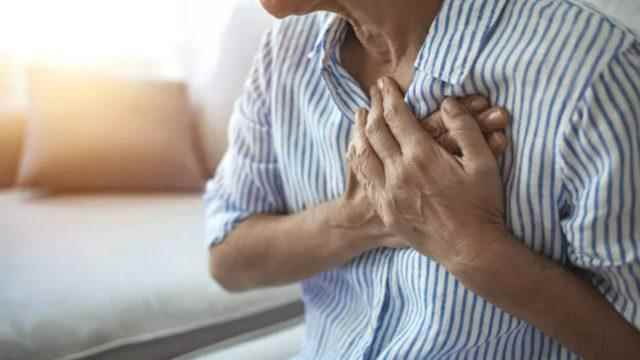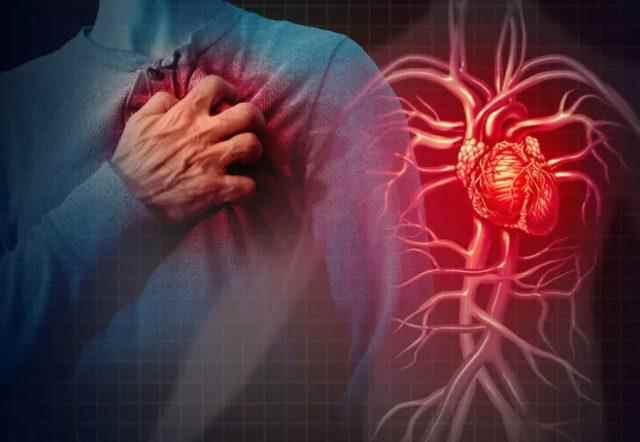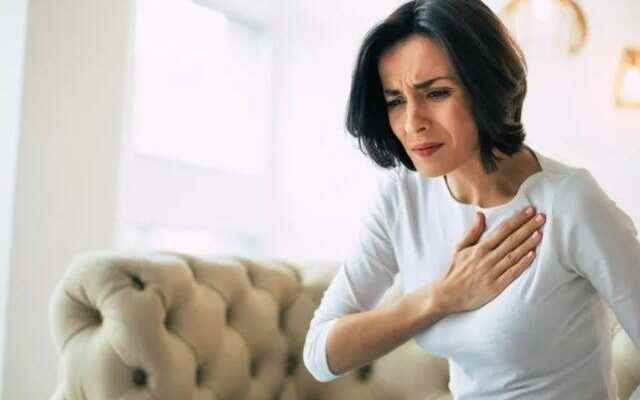A heart attack is a serious medical emergency in which blood flow to the heart is suddenly blocked, usually by a blood clot. It requires prompt medical attention to eliminate the risk of permanent damage to the heart muscle. There are also unknown symptoms of a heart attack, which are usually manifested by chest tightness. Harvard Health states that most people ignore the other symptoms, assuming that the symptom of a heart attack is just chest pain.
It can be easy to ignore early symptoms as they don’t always feel severe, but in these cases it’s essential to call an ambulance. The faster you act, the better your chances of a full recovery. According to the health organization, “pain, numbness, pinching, tingling, or other uncomfortable sensations in one or both arms, back, neck, jaw, or stomach” may be warning signs that you’re having a heart attack. Other signs to detect include:

- Shortness of breath
- Sudden nausea or vomiting
- dizziness or lightheadedness
- unusual tiredness
- hot/flushing or cold sweat
- Sudden heaviness, weakness, or pain in one or both arms.
If you notice one or more of the above symptoms in yourself or someone else, call the emergency room “immediately” and inform the healthcare provider.
WHAT TO DO IN THE TIME OF A HEART ATTACK?

If you are alone during a heart attack;
- During a heart attack, there is no maneuver that a person can do to open his clogged vein.
- First of all, as soon as the pain starts, the patient should call his relatives by phone and inform the situation.
- The door of the place should be left ajar. Thus, the job of the person who will come to help becomes easier.
- A vigorous cough may temporarily increase blood flow. Although the probability of dislodgement of a newly started clot is very low, the person should cough vigorously by closing the nostrils.
- Apart from this, absolutely nothing should be eaten or drunk.
- The window should be opened to allow oxygen to enter the room.
- The arrival of help should be expected by lying down or sitting. Definitely not standing still. Because a patient who comes to the hospital with a heart attack should not have a trauma problem. If the person has fallen and hit his head, the treatments for a heart attack may not be possible due to the blow to the head.
- Exercise should not be done to reduce pain.
- Never go under cold or hot water. Especially cold water is very dangerous in such situations. Because it constricts the heart vessels and can cause narrowing of the non-occluded vessels.
To reduce the risk of a heart attack

- Oil consumption should be minimized.
- Fried foods should be avoided as much as possible.
- Sugar and salt consumption should be reduced.
- Fresh vegetables, fruits, fish and fibrous foods should be preferred.
- Foods with high antidoxan properties such as walnuts and hazelnuts and containing omega 3 should be consumed.
- Smoking and alcohol should be avoided.
- It is important to do sports, and those who cannot do sports should not neglect walking for 1-2 hours a day.
